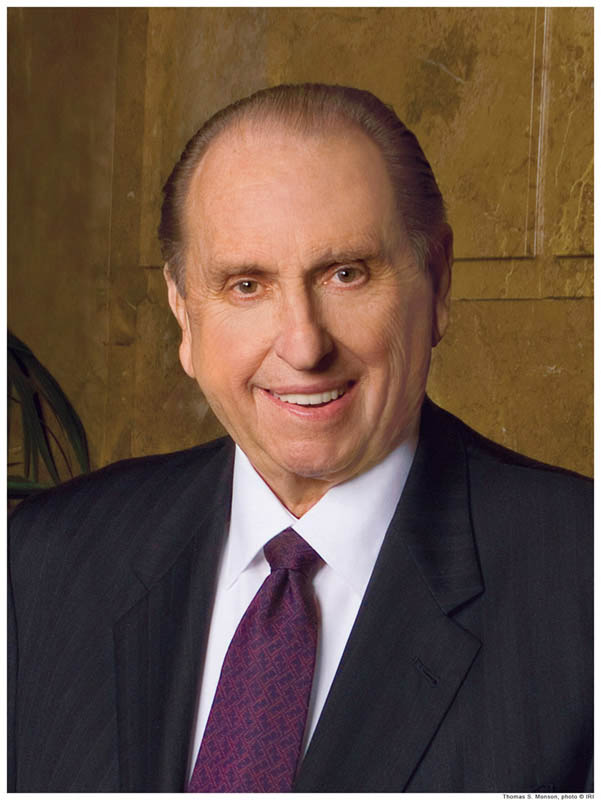As we read the Old Testament, it is impossible to avoid seeing that God prefers to communicate with the world through prophets. Although the Bible shows us God also communicates to individuals those things that impact their personal lives, when He has a message for all His children, He sends it through His prophet.
 This is because it is the most effective way to avoid confusion. Even today, we can see that many people claim to know exactly what God wants and some even claim their information came directly from God. Since these people often contradict each other, they cannot all be receiving their information from God because God is not a God of confusion.
This is because it is the most effective way to avoid confusion. Even today, we can see that many people claim to know exactly what God wants and some even claim their information came directly from God. Since these people often contradict each other, they cannot all be receiving their information from God because God is not a God of confusion.
This problem has existed since early in the world’s history. There have nearly always been multiple people claiming to have access to God’s word. It has always been the responsibility of each believing person to learn for himself who God’s prophets really are.
Mormons—a nickname for members of The Church of Jesus Christ of Latter-day Saints—are one of the very few churches that openly proclaim God has not stopped speaking to His children forever. They are headed by a prophet of God, following the admonition of the Bible that the church must be built upon a foundation of prophets and apostles:
19 Now therefore ye are no more strangers and foreigners, but fellowcitizens with the saints, and of the household of God;
20 And are built upon the foundation of the apostles and prophets, Jesus Christ himself being the chief corner stone (Ephesians 2:19-20).
The advantages of having the church led by prophets is clear and helps us understand why God chose this pattern for His church from the very beginning of time. When only one person is the prophet, we know exactly who to turn to for truth. While many people might preach conflicting doctrine, we can have assurance that the prophet, when speaking as a prophet, is telling us God’s word. When prophets announce that a teaching is canonized, we know it is accurate, whereas doctrine put to a vote is uncertain.
Mormons teach their members and prospective members to find out for themselves if the prophet is a true prophet. Because God has promised to give us any wisdom we ask for, we can go to Him in prayer and ask if the Mormon prophet is the true prophet. We don’t have to trust any mortal for an answer, and prospective Mormons are taught they must not take anyone’s word for it. Only if the confirmation comes directly from God can we have an unshakable testimony:
If any of you lack wisdom, let him ask of God, that giveth to all men liberally, and upbraideth not; and it shall be given him (James 1:5).
After Jesus and the apostles were gone, the world fell into apostasy. There was no authority to speak for God, which meant there were no prophets. The small numbers of believers did the best they could to keep truth alive, but even before the apostles were gone, the church was struggling with apostasy.
15 This thou knowest, that all they which are in Asia be turned away from me; of whom are Phygellus and Hermogenes. (2 Timothy 1:15)
However, at that time, the apostles could still straighten out the misconceptions that were springing up throughout the church. When they were gone, there was no one who could do that. If a disagreement arose over how to interpret the teachings and writings, there was not a prophet who could go to God for clarification.
Today, the gospel of Jesus Christ as taught in the New Testament has been restored and there are again prophets on the earth. Beginning with Joseph Smith, who, like some Biblical prophets, received his call at a very young age, there has since been a prophet on the earth and there will be until Jesus Christ returns. These last days are very complex and we face ethical and spiritual challenges the people of the Bible could not have imagined. Many churches differ dramatically on eternally significant teachings, including trying to decide which Biblical teachings they still want to obey. To navigate this complex time, a prophet is very clearly needed.
We note that in the Bible, God didn’t give the exact same instructions to each generation. New prophets added to the teachings, increasing our understanding of the gospel. Many altered practices in order to meet the specific needs of the time. For instance, the Law of Moses was introduced even though it had not been in practice before Moses introduced it. This is not because Moses was making things up or being convenient, but because God saw a need for it at that time and knew it was not needed at a later time. Moses also introduced the Ten Commandments. Jesus introduced a higher law than the one previously practiced because it was time for the world to step up to the next level. Throughout Biblical history God showed us that prophets will always be necessary because world conditions change and we become ready for higher laws and new practices.






